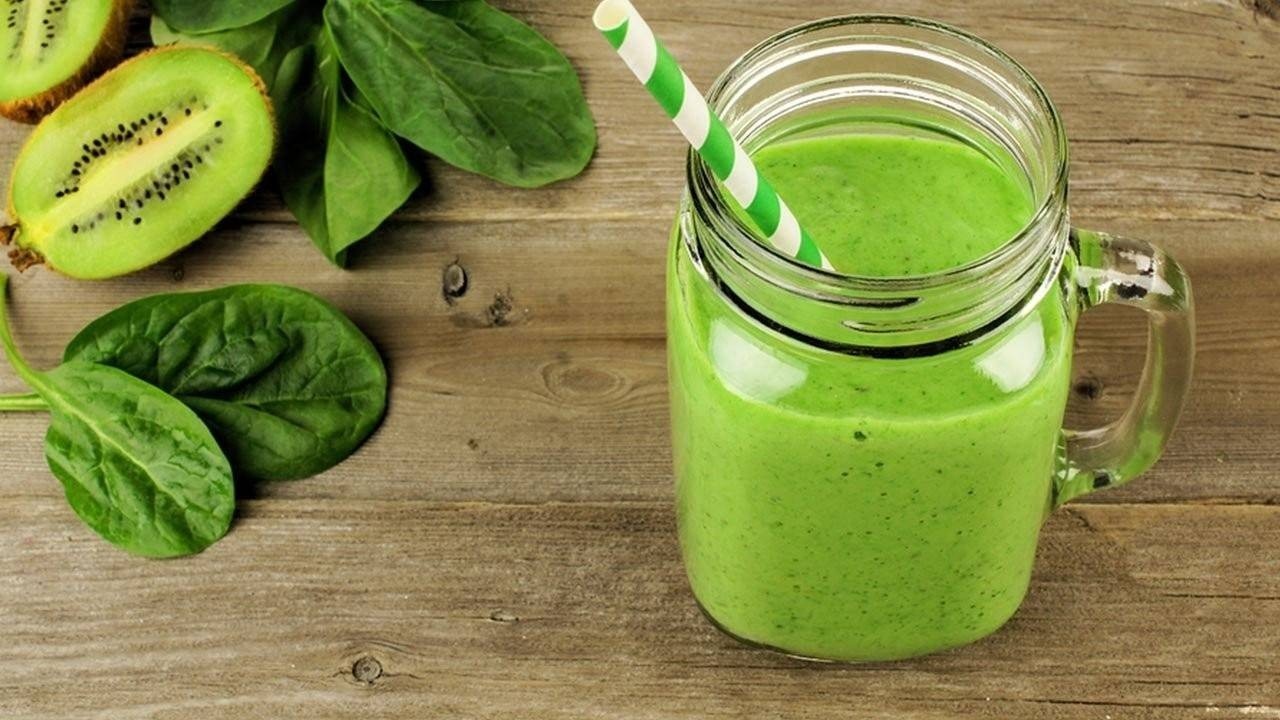Juicing and Pregnancy - Ultimate Guide!

Juicing and Pregnancy
As an expecting mama, one of the first things I did was to find out what I could eat, what I could drink, and more importantly what I must avoid. Juicing and pregnancy was one topic I wanted to learn more about.
Getting the right prenatal nutrients was now a priority. I knew I had to get my daily intake from fruits and vegetables. So what was the best way I could do this? Juicing was something I started reading more about.
But I often found conflicting information which only lead to more endless searching.
What I found was that I needed to know what foods to avoid when pregnant. I wanted to know what fruits or vegetables I should avoid using in my juices or smoothies. This information was important to keep baby safe. And by knowing this I had peace of mind.
Nutritional Needs During Pregnancy
Pregnancy is a time when your body requires additional nutrients, vitamins, and minerals. An increased intake of certain nutrients like folic acid, iron, calcium, and protein is vital to support the development of your baby and maintain your health.
Juicing can be an excellent way to supplement these nutrients, but it should not replace whole foods, which provide dietary fiber and other essential nutrients.
It's important to ensure that the juices you consume cater to your increased nutritional needs. Opting for a variety of fruits and vegetables in your juices can help you achieve a balanced intake of vitamins and minerals.
However, moderation is key, as excessive intake of vitamin-rich juices can lead to nutrient imbalances.
What Should I Eat?
The one common answer I got was that I should be eating wholesome foods, fruits and vegetables that gave me the vitamins and minerals I required. And I needed to avoid packaged foods that were high in sugar, preservatives and additives.
One way to get my daily intake of prenatal nutrients was from juicing and smoothies.
The next dilemma I had was trying to figure out which of the hundreds of juice recipes were best for a pregnant woman. Not to mention, some sounded delicious while some were quite 'un-drinkable.'
Juices are being sold everywhere!
From juice shops in the malls, cafes to pre-packaged juice.
Like many other pregnant women, experiencing an aversion to some foods was normal. What was once a food item I looked forward to eating on a regular basis was now intolerable.
And what a problem that exposed when I could no longer stomach some greens. But I knew I needed them to get the valuable nutrients both baby and I needed.
Juicing and smoothies to the rescue!
What I eat has a huge impact on how I feel. And while I love chocolate and my sweet treats occasionally, they can make me feel a little sluggish. When I eat the healthy foods I feel energized. So juicing during pregnancy became a 'go-to' solution.
1. Is Juicing Safe During Pregnancy?
I read that cold pressed juice isn't safe for pregnant women due to its lack of pasteurization. Not what I wanted to hear, but something that required more research.
The key is to know that where you buy your fruit and vegetables from are diligent in how they safely handle and stock their produce.
And when you get these items home, it is important to wash them before using. If possible, organic vegetables are the best option.
And another important tip is to drink your juice immediately. Yes, you can drink it for up to 24 hours later if stored in the fridge. But I recommend you only make enough that you will drink immediately.
Choosing Safe and Healthy Ingredients for Juicing
Selecting the right ingredients for juicing is crucial during pregnancy. Choose fruits and vegetables that are low in sugar and high in essential nutrients. It's best to avoid ingredients that are known allergens or those that might cause digestive issues.
Organic produce is preferable to reduce exposure to pesticides, and thoroughly washing all ingredients is important to remove any residual chemicals or bacteria.
Juicing Dos and Don'ts for Pregnant Women
When incorporating juicing into your pregnancy diet, there are several dos and don'ts to consider. Do include a variety of colors in your juices to maximize nutrient intake, and do drink juice fresh to get the most benefits.
Don't replace meals with juice; it should be a supplement to a balanced diet. Don't consume unpasteurized juices, as they may harbor bacteria like Listeria, which can be dangerous during pregnancy.
Additionally, do consider blending instead of juicing to retain fiber, which is beneficial for digestion. Don't add extra sweeteners to your juices; the natural sweetness of the fruits is sufficient.
And, always do listen to your body and adjust your juicing habits if you experience any adverse reactions.
Hygiene and Food Safety Practices for Juicing
Maintaining strict hygiene and food safety practices is essential when juicing during pregnancy.
- Always start by washing your hands thoroughly before handling any ingredients.
- Make sure all fruits and vegetables are washed under running water and scrubbed if necessary to remove dirt and bacteria.
It's also important to clean your juicer regularly and thoroughly to prevent the growth of harmful microorganisms.
Juices should be consumed immediately after preparation to minimize the risk of bacterial contamination. If you need to store juice, do so in a tightly sealed container in the refrigerator and consume it within 24 hours.
Never drink juice that smells sour or has been left out at room temperature for an extended period.
Chat to Your Doctor or Dietitian
As with anything you consume, or do throughout your pregnancy, you should always let your doctor know.
Every woman is different and there may be some ingredients you must avoid because you may be allergic to them or they are not safe for a pregnant woman.
2. What Not to Drink When You Are Pregnant?
While it is safe to drink freshly pressed juice throughout your pregnancy, there are some things to be mindful of. I chat about this in more detail below.
Pregnant Women Be Aware!
Have you heard of Toxoplasma? This is a parasite that can be found on unwashed fruits and vegetables and is harmful to a pregnant mama and her unborn baby.
Avoid Sprouts
Bacteria can get into sprout seeds through cracks in the shell before the sprouts are grown. Once this occurs, these bacteria are very difficult and almost impossible to wash out.
This also includes growing and eating your own sprouts grown in the home. Many outbreaks have been linked to contaminated seed.
3. Can I Juice At Home While Pregnant?
The answer to this is yes! It is preferable as you control the storage of the produce and can drink it immediately after making it.
When you make your own juice you can control how the fruits and vegetables are being stored, how they are being prepared for juicing and how long ago the juice was made.
You see, in many juice bars or restaurants, their goal is to minimize wastage and they will often use all the produce they can in various forms.
Be Careful
So, as a result, some of these places that sell fresh pressed juice is not properly prepared or is unpasteurized.
The big issue here with unpasteurized juices during pregnancy is that if the fruit and vegetables are not properly washed, then you may be exposed to bacteria like salmonella or E. coli.
Which will make you sick and can cause some serious problems to the health of your growing baby.
I am sure you have heard about the risk of eating some salads from cafes or restaurants? The same applies here in that you don't know how long ago the salad was made, and how it has been stored for the past few hours or longer.
Your Pregnancy Immune System
I recently wrote a post on this very important topic of how to boost your immune system when pregnant. In a time where our immune system needs to be strong, we are faced with the reality that pregnancy change sour body in many ways.
We are now more susceptible to illnesses, including food-borne illnesses. And what we know is that not only can these pathogens harm us, but many of these can harm our fetus.
Supermarket Juices
Generally, the juices you buy from the supermarket are safe because they've been heavily heated and processed. But many of these lack the goodness of freshly produced juices.
So, the main takeaway is that juicing during pregnancy is safe, but you must know where the produce came from. And it is best if you make your own juices. Let's move on to some juicing.
4. Tips for Juicing at Home
I have already mentioned some of these tips but let's make it clear what you need to do.
1. Choose Organic
Choose organically grown produce to reduce your exposure to pesticides. Try to limit your exposure to toxins and pesticides during pregnancy. The best way to do that is to opt for organic juices.
2. Preparation
Wash your produce thoroughly in a specified fruit and vegetable wash, even if you purchase organic. Raw fruits and vegetables can become contaminated with harmful bacteria.
Here's the right way to prepare and handle them safely:
1. Don't use soap, detergents, or bleach solutions to wash produce.
2. Carefully rinse raw fruits and vegetables under running water before eating them.
3. Use a small vegetable brush to remove surface dirt.
4. Try to cut away damaged or bruised areas to prevent bacteria.
3. Storage
When juicing with a slow juicer, store your freshly pressed juice in a glass container that has a lid on it. Store your juice in the fridge. Consume it within 24 hours. When using a fast (centrifugal) juicer, it is best to drink your juice right away.
4. Cold Press juices when Pregnant
Are you buying and drinking cold-pressed juices? They are a great healthy option and are full of nutrients.
But the big problem is that they are raw, or unpasteurized. And this is what makes them unsafe for pregnant women.
5. Unpasteurized is a Problem
The problem here is that without the pasteurization process, these foods can potentially carry bacteria which you know can put you at greater risk of food-borne illnesses such as listeria.
And while listeria is quite rare, it can cause miscarriages, premature labor, and stillbirths. So the risk is not worth it. Make sure to choose a pasteurized option.
6. Read the nutrition label.
It is important you learn how to read nutrition labels so you can identify the nutrition content but also any ingredients you need to avoid.
7. Consume in moderation.
You should always aim to get your nutrients from eating healthy foods. Juices and smoothies are good, but only in moderation.
Why?
Because they contain sugar. And when you're pregnant, it's especially important not to consume sugar excessively, as a diet that's too high in sugar content can potentially lead to gestational diabetes. So like anything else, moderation is key.
8. Variety is the Key
Try an vary the flavors of your juices. You may always want to make the same juice with the same ingredients, but it's best to alternate and choose different combinations. This will ensure you are getting a variety of vitamins and minerals.
9. Which juice is good for pregnancy?
The best juice is one that gives the nutrients you need. And using various ingredients will help you to get all the required nutrients, vitamins and minerals such as iron, vitamin C, calcium, folate, vitamin D, beta carotene, vitamin E and vitamin B6. I have listed the best options below.
5. Which Fruits should You Eat during Pregnancy?
1. Apricots
All of these nutrients help with the baby's development and growth. Iron can prevent anemia and calcium helps bones and teeth grow strong.
Apricots benefits:
- vitamins A, C, and E
- calcium
- iron
- potassium
- beta carotene
- phosphorus
- silicon
2. Oranges
Oranges keep you hydrated and healthy. Vitamin C can help prevent cell damage and assist with iron absorption. Folate can help prevent neural tube defects.
Oranges benefits:
- folate
- vitamin C
- water
3. Mangoes
Mangoes are rich in vitamins A and C. One cup of chopped mango provides 100 percent of a person's recommended daily allowance (RDA) of vitamin C and more than a third of their RDA of vitamin A.
4. Pears
Getting plenty of fiber in a pregnancy diet can help ease constipation. Potassium can benefit heart health for both the woman and baby.
Pears benefits:
- fiber
- potassium
- folate
5. Pomegranates
Research suggests that drinking pomegranate juice may help to decrease the risk of injury to the placenta. Vitamin K is also essential for maintaining healthy bones.
Pomegranates benefits:
- vitamin K
- calcium
- folate
- iron
- protein
- fiber
6. Avocados
Avocados contain healthful fats that provide energy and help to prevent neural tube defects. They also boost the cells responsible for building the skin and brain tissues of the developing baby.
Avocados benefits:
- vitamins C, E, and K
- monounsaturated fatty acids
- fiber
- B vitamins
- potassium
- copper
7. Guava
Guava contains a varied combination of nutrients. Eating guava during pregnancy can help to relax muscles, aid digestion, and reduce constipation.
Guava benefits:
- vitamins C and E
- polyphenols
- carotenoids
- isoflavonoids
- folate
8. Bananas
The high fiber content of bananas can help with pregnancy-related constipation. There is some evidence that vitamin B-6 can help relieve nausea and vomiting in early pregnancy.
Bananas benefits:
- vitamin C
- potassium
- vitamin B-6
- fiber
9. Berries
Berries contain lots of water, so they are an excellent source of hydration. Vitamin C helps with iron absorption and boosts the body's immune system.
Berry benefits:
- vitamin C
- healthy carbohydrates
- antioxidants
- fiber
10. Apples
One study found that eating apples while pregnant may reduce the likelihood of the baby developing asthma and allergies over time.
Apple benefits:
- vitamins A and C
- fiber
- potassium
6. Benefits of Eating Fruit
Fruits provide vitamins and nutrients that are essential during pregnancy. In addition to supporting the growing baby, an increased intake of vitamins and minerals can help you to stay fit and healthy.
This includes playing an important role in boosting your immune system.
How much fruit should I eat during pregnancy?
The advice for pregnant women is to eat at least five portions of fresh fruit and vegetables each day and to vary these as much as possible. Fruit can be fresh, canned, frozen, or dried.
7. Fruits to Avoid During Pregnancy
Some fruits must be strictly avoided during pregnancy, in any form, whether eaten whole or juiced.
1. Grapes
Though highly debated, grapes contain a compound called resveratrol which can be toxic to pregnant women, and weaken their digestive system.
2. Papaya
Papaya causes your body temperature to shoot up, resulting in complications during pregnancy, and even miscarriage.
3. Pineapple
Pineapples contain bromelain, which is an enzyme that attacks the cervical wall and causes contractions that can lead to a miscarriage.
8. Is orange juice good to drink while pregnant?
ANSWER: Yes. You should drink orange juice with added calcium and vitamin D while pregnant because it has the same levels of these nutrients as milk. Plus, orange juice has hefty doses of vitamin C, potassium, and folate.
Ideally, make your own orange juice as some you buy in the supermarkets may contain added preservatives and also more sugar.
What to Juice
1. Carrots are rich in beta-carotene and vitamin E.
2. Kale contains folate, vitamins K, A and C. Kale plays an important role in preventing birth defects like spina bifida.
3. Peppers provide vitamin C, E and several carotenoids. Red peppers contain the highest level of nutrients.
4. Fresh ginger root will make it slightly spicy while helping to control nausea. Ginger is a good source of vitamin C and iron.
5. Beetroot contains the powerful antioxidant betacyanin. It improves energy levels and acts as an inflammatory.
6. Tomatoes are high in vitamins and antioxidants that may boost energy levels and digestive functioning.
7. Spinach has high levels of iron and folate, vitamins A, C, E. It promotes bone health.
8. Cucumbers serve as a diuretic and prevent swelling.
9. Apples contain high levels vitamin C.
10. Oranges contain high levels of folate, vitamin C, A, calcium and thiamin.
9. Juicing Options when Pregnant
1. Strawberry Juice
This is one of the best fruit juices recommended to women who are pregnant. Strawberries are packed with antioxidants that help build immunity in the body.
How to Make:
- Rinse and chop the strawberries into small pieces.
- Blend everything to a smooth consistency.
- You may also add some fresh lemon juice to enhance the flavor.
- Using a strainer, filter the juice.
- Have fresh juice immediately that taste sweet and sour.
2. Beetroot Juice
This is a great juice to drink during pregnancy, as it is full of vitamin A.
How to Make:
- Wash the beetroots and peel them.
- Cut into small pieces. Put them in a blender or a juicer.
- Puree till smooth, add sugar and water and blend it again.
- Add lemon for enhancing its flavor.
- Have it fresh.
3. Pomegranate Juice
Pomegranate juice contains high amounts of fiber, Vitamin C and Vitamin K. This helps prevent constipation, which is common during pregnancy.
How to Make:
- Put the pomegranate arils into a blender. Blend until crushed.
- Use a strainer to filter the juice.
- You may use a spatula to press the pulp against the sieve.
- Have it fresh.
4. Guava Juice
A good source of Vitamin C, guava juice is a great add-on during pregnancy. It helps in keeping blood pressure and blood sugar under control.
How to Make:
- Peel and chop guava into small pieces.
- Put into a blender along with some water.
- Filter the juice using a strainer.
- You can add some fresh lemon juice or ginger for flavor.
- Have it immediately.
5. Carrot Juice
Carrots are rich in calcium and help in the development of bones and teeth of the baby. It is a good source of Vitamin C, A, and beta-carotene, which act as an antioxidant and protect the mother from free radicals.
How to Make:
- Wash and scrub the carrots to remove dirt and any debris.
- Cut into small pieces and add into a blender or juicer.
- Add water to keep the blender moving smoothly.
- Have it fresh.
6. Orange Juice
This refreshing juice is rich Vitamin C and folates. Oranges also release iron and zinc, which is important for strengthening the immune system.
How to Make:
- Slightly squeeze the oranges firmly using your palms on the table counter.
- Peel them and slice into four parts.
- Blend in a grinder or juicer. If too dry, add enough water and some sweetener for taste.
- If you do not want the pulp, strain the juice.
- Enjoy the glass of freshly squeezed and unpasteurized orange juice.
7. Apple Juice and Pregnancy
Apples are full of nutrients and minerals. Apple juice is one of the best juices recommended during pregnancy by doctors.
Apple juice can keep pregnancy weight gain at bay and also aid in the development of your baby's brain.
How to Make:
- Peel the skin and cut small pieces of apple.
- Add them to sufficient water and boil them.
- Allow it to cool and blend them with water.
- Serve fresh apple juice, and you may add lemon juice for enhanced taste.
8. Cranberry juice
Made up of 90% water, a regular intake will keep you hydrated. High levels of antioxidants help combat inflammation and protect the body from free radical damage.
How to make:
- Add cranberries to water in large pan and boil.
- Lower the flame, and boil until the berries turn soft and burst open.
- Filter the juice using a muslin cloth or a strainer.
- You can add sugar or honey if the juice is sour.
- You can also combine it with some other fruit juice to enhance its flavor.
9. Prune Juice
Excellent sources of dietary fiber that you need during pregnancy. Contain sorbitol and phenolic components that offer laxative properties. Helps manage constipation and restores bowel movements.
How to make:
- Take one cup dried prunes and remove their pits.
- Boil five cups of water. Add to the pitted prunes until totally immersed.
- Soak for 24 hours. Then blend them along with the water that has been used for soaking.
- Filter clear juice using a strainer.
- Combine the juice with the remaining boiled water.
- Have it fresh and keep the remaining juice in the refrigerator. It stays fresh for a week.
9. Celery Juice
Yes, celery juice is safe and healthy to consume while pregnant. But you need to listen to your body and if it is causing issues, stop. Please do not participate in an extreme celery juice program or diet. Now is not the time.
Celery is a rich source of beneficial enzymes, antioxidants and other nutrients including vitamin B6, vitamin C, vitamin K, along with potassium and folate.
How Safe Is Celery During Pregnancy?
Generally, it is safe to eat celery during pregnancy. But always let your doctor know what you are eating and drinking.
Why?
Because many believe that some parts of celery can cause uterus contractions and bleeding.
Also. in some cases, celery may cause a severe allergic reaction. Some people allergic to celery can cause potentially fatal side effects. The consumption of a large amount of celery may contract the uterus and result in miscarriage.
Juice Recipes to Try Out
I want to keep it simple with giving you some healthy juice recipes. You can search online and get hundreds of recipes.
But I found that the more complicated the recipe, and the more ingredients you require, the less likely you will lose motivation to keep making them.
1. Pregnancy Juice with Beet, Carrot and Apple
Ingredients
- 1/2 Beetroot
- 2 Carrots
- 1 Apple
2. Folate Rich Juice
Ingredients
- 3 Oranges
- 1/2 Apple
3. Juice to Reduce Blood Pressure and Help with Constipation
Ingredients
- 2 Carrots
- 1/4 Beetroot
4. Fresh Apple and Cucumber Juice
Ingredients
- 1 Large Cucumber
- 1/2 Apple
5. Overall Health
Ingredients
- 2 oranges
- 3 kale leaves
- 1/2 cup of spinach
- 5 stalks of asparagus
Yes, juicing is safe and can provide you with lots of prenatal nutrients. But please follow the tips provided and still aim to get all your vitamins and minerals from eating healthy foods.
6 Fresh Juice Recipes for Pregnant Women
Let's explore each of the 8 juice recipes, highlighting the key ingredients, their health benefits, and how they can help to improve energy levels and overall wellness during pregnancy.
From sweet and refreshing to tangy and revitalizing, these recipes cater to a range of tastes and preferences. We'll dive into the world of fruits, vegetables, and herbs, exploring their unique properties and how they can support a healthy pregnancy.
Whether you're a seasoned juicer or just starting out, these recipes are perfect for incorporating into your daily routine.
1. Green Goddess Juice
The first recipe we're going to explore is our Green Goddess juice, packed with spinach, kale, and green apple. This refreshing blend is designed to provide a natural energy boost while supporting iron absorption.
The combination of leafy greens and fruit creates a delicious and satisfying taste that's perfect for any time of day.
2. Citrus Burst juice
Next up is our Citrus Burst juice, blending together orange, grapefruit, and pineapple for a tangy and revitalizing drink.
This recipe is designed to combat morning sickness and provide a much-needed energy boost.
3. Beet Juice
The third recipe is our Beet Blush juice, featuring beets, carrots, and apple. This sweet and earthy blend is perfect for supporting heart health and providing a natural energy boost.
4. Spicy Greens
This juice includes combining kale, spinach, and ginger for a refreshing and invigorating drink.
This recipe is designed to support immune function and provide a natural energy boost.
5. Tropical Juice
The fifth recipe is our Tropical Temptation juice, blending together pineapple, mango, and coconut water for a sweet and refreshing drink. This recipe is perfect for hot summer days and provides a natural energy boost.
6. Carrot Juice
The sixth recipe is our Carrot Karma juice, featuring carrots, apple, and ginger. This sweet and spicy blend is designed to support immune function and provide a natural energy boost.
Bonus
Next up is our Golden Glow juice, combining turmeric, pineapple, and coconut water for a refreshing and revitalizing drink. This recipe is perfect for reducing inflammation and providing a natural energy boost.







